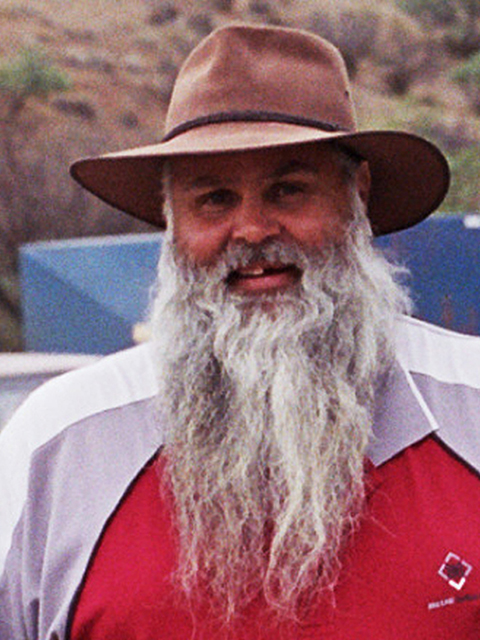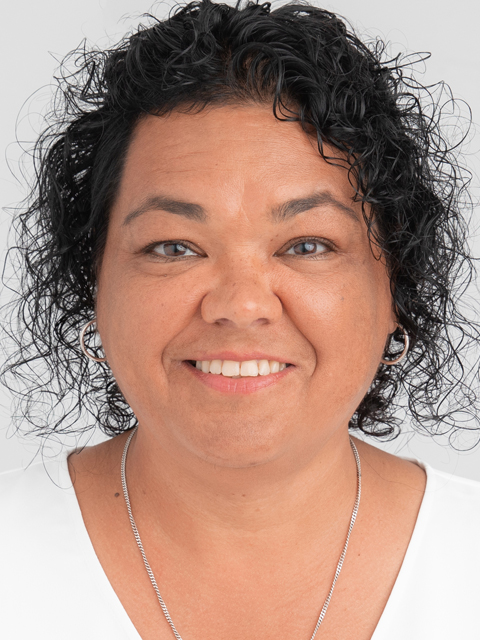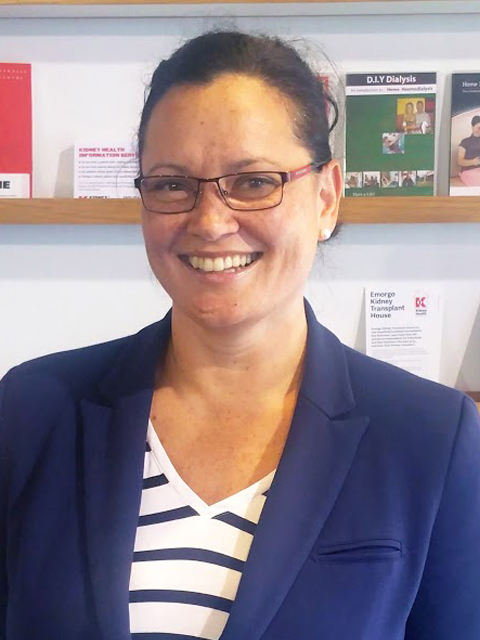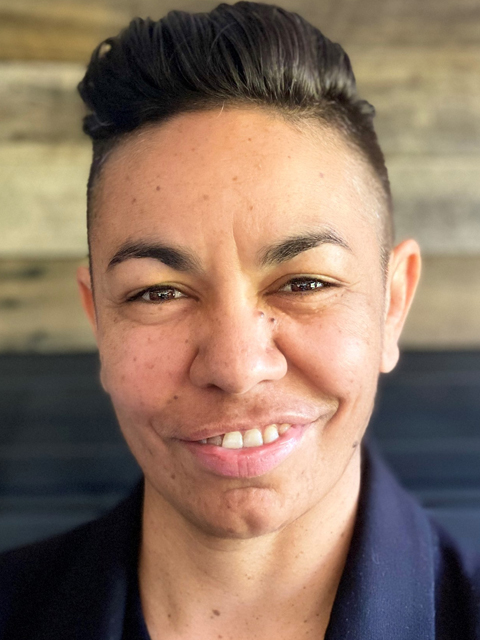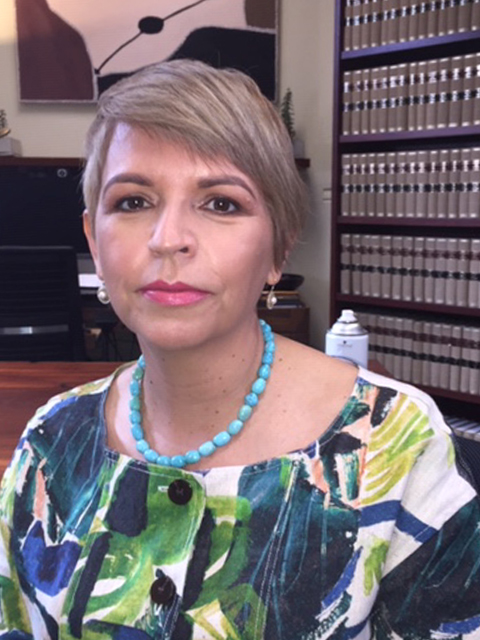In Determining our futures, the third episode in the Voices of Power series, Indigenous Churchill Fellows discuss treaties, truth-telling, representation in parliaments and a meaningful First Nations voice to the nation.
Churchill Fellows, Michelle Deshong, Cara Kirkwood, Hannah McGlade, Parry Agius and Donisha Duff, discuss how Australia has fared without a treaty and the impact of having First Nations peoples in our parliaments.
How does Australia’s experience compare to places like New Zealand and Scandinavia? After decades of consultation and debate on constitutional recognition, is Australia ready to make First Nations self-determination a reality?
Subscribe to Voices of Power
Subscribe below using your preferred podcast platform to get notified when new episodes are available.
Churchill fellows
- Show notes
-
Transcript
AIATSIS: This is an AIATSIS podcast. We acknowledge the traditional custodians of country throughout Australia and their continuing connection to land, culture and community. We pay our respects to elders past and present.
Aboriginal and Torres Strait Islander people should be aware that this podcast contains voices and names of deceased persons.
Host: Hello, I’m Craig Ritchie, a Dhunghutti man and CEO of the Australian Institute of Aboriginal and Torres Strait Islander Studies, better known as AIATSIS.
Welcome to episode three of our Voices of Power series. It’s great to have you back.
This series is a joint production between AIATSIS and the Churchill Trust, an organisation that supports Australians from all walks of life to travel abroad to explore issues of importance and to bring that knowledge back to the benefit of their communities.
I’m a Churchill Fellow myself and today you’ll be hearing from Indigenous Fellows — Cara Kirkwood, Hannah McGlade, Parry Agius, Donisha Duff and Michelle Deshong.
In this third episode — Determining our futures — the fellows discuss treaties, truth-telling, representation in parliaments and how to create a strong First Nations voice to the nation.
And now over to our presenter Vic Simms,
Narrator: Thanks Craig! I’m Vic Simms from the Bidjigal people of Botany Bay, First Nations people discovered on the East Coast of Australia.
Good to have you with me on this third episode of Voices of Power.
Within decades of the white occupation of Australia, First Nations peoples began calling for recognition, a treaty and representation in parliament.
As far back as 1933, Yorta Yorta elder William Cooper sent a petition to King George calling for the creation of an Indigenous seat in the Australian Parliament.
Here’s part of that petition.
Voicer: … (a), our lands have been expropriated by Your Majesty’s Governments, and (b) Legal status is denied to us by Your Majesty’s Governments;
And whereas all petitions made on our behalf to Your Majesty’s Governments have failed:
Your petitioners humbly pray that your Majesty will intervene on our behalf, and, through the instrument of your Majesty’s Governments in the Commonwealth of Australia — will prevent the extinction of the Aboriginal race and give better conditions for all.
Granting us the power to propose a Member of Parliament, of our own blood or white man known to have studied our needs and to be in sympathy with our race, to represent us in the Federal Parliament.
Narrator: That was part of William Cooper’s petition to the King in 1933.
As well as a voice in or to the Parliament, over the decades, First Nations peoples and the representative bodies and councils set up by governments, have repeatedly called for a national treaty.
Audio: Pat Dodson / Larissa Behrendt / Michael Mansell / Rhonda Jacobsen / Galarrwuy Yunipingu
Narrator: That was Galarrwuy Yunupingu at the 1988 Barunga Festival where Prime Minister Bob Hawke promised a treaty in his term of office.
Audio: Former Prime Minister Bob Hawke
Narrator: That treaty never eventuated.
And, the current Federal Government has said treaties are better negotiated by state and territory governments.
Treaty processes are underway in some states and territories, but none are resolved.
The experience of Churchill Fellows, Michelle Deshong and Hannah McGlade is that the treaties negotiated overseas, though far from perfect, have at least given First Nations peoples over there a seat at the table.
Michelle’s a Kuku Yalanji woman from Far North Queensland.
Deshong: I saw some really powerful things about the assertion of authority and opportunity and this comes about, in particularly countries like New Zealand, the US and Canada, as having treaty rights, jurisdictional control, being able to create their own economies and to use a treaty as a foundational piece.
Now, everybody will always tell you that the treaties don't quite go far enough or that they're too complex, or that they don't address all the issues. But what I kept reminding them was to say, ‘Yes, but at least you have that.’
So that's one of the things about appreciating that it is a starting point and it does change the engagement levels significantly when a treaty does exist.
Narrator: Hannah McGlade is a Noongar woman from Western Australia.
McGlade: It's been a significant influence. And we can see that, watching what's happening, the developments in New Zealand and Canada which had historical treaties and Canada has also had modern-day treaty-making processes, as well which no doubt was influenced by the fact that they had those earlier treaties which were protected subsequently in the Canadian Constitution.
In New Zealand, at the moment, under the Treaty of Waitangi, the Maori women are negotiating a settlement or a claim, they are increasing recognition of Maori women's rights, including I’m sure their right to safety, their recognition of their leadership rights and equality rights are being pursued through the Waitangi Tribunal.
We don't have that mechanism in Australia because of the utter disregard and contempt that the British colonists had for Aboriginal people an attitude which has sadly influenced the course of Australian history and politics.
Narrator: With his Churchill Fellowship, Parry Agius, looked at treaty-making with the chiefs of the Navajo and Cree nations in the US and Canada; and how the Sámi peoples of Scandinavia have set up parliaments and councils.
Parry says because authorities in the US and Canada negotiated from very early times with tribal chiefs, some Native American tribes, particularly in the US, were able to hold onto their traditional decision-making practices.
Agius: They were shifted to an isolated spot somewhere hundreds of kilometres away from their own country, their own traditional lands, but they still were together.
They elected their chief, they elected their deputy chief and the community. So, from that angle, they were able to maintain their way of life and their way of decision-making because there was no other interference or influences to actually change that.
Narrator: Parry points out how different some of those overseas experiences were to what happened here in Australia — where many people were split-up and moved onto reserves; and white superintendents and missionaries were in charge.
Here’s some of the drills that children were put through at the Santa Theresa Mission East of Alice Springs in the early sixties.
Audio: Archival sound from Santa Teresa [Ltyentye Apurte] mission
Agius: The governance that we learned was from a superintendent, a singular person who is responsible for a mission. And then that person was responsible to a state act, the Aboriginal protector’s act, and each state had their own legislation.
So, the decision-making by the Aboriginal people were so far from the ability for them to do anything, they became inactive in the governance of the community.
But the individuals, at an individual level, at a family level, the families would've been practicing family-type practices that they brought from pre-contact and into mission life.
And, so when you think about decision-making, it's family decision-making that was the strength.
The role of family in decision-making would've been quite strong even though they had a superintendent overseeing the operations of the mission, the ability for the families to make their own decisions was there and they were practicing it.
Narrator: Parry says the heavy-handed control of Indigenous people by Australian authorities for almost 200 years, left our mob without the right tools when governments suddenly started talking about self-determination in the early seventies.
Agius: The Aboriginal people came out of the mission day concepts, with no tools, no knowledge or limited knowledge about running forums and committees for the greater good of the community.
So, who did they bring into the system and where did the resources come from?
Aboriginal organisations who received grants from government, especially from the 1970s onwards, in the early days of that, they were employing people with community development skills.
And so, those first few years, we saw lots of interfacing happening with peoples who had those skills and the Aboriginal groups who didn't have those skills.
And so, every 12 months, there'd be a new election, new chair, new organisation, but you’d have the same coordinator. You know, and some of those coordinators stayed for three or four, or five years.
So, you had five years of one single person's way or a couple of people's way of doing business. And, they were learning, the Aboriginal leadership were, through those forums, were learning that, and learning it, and becoming skilful in that sort of work.
But what they didn't do also was engage and employ people with economic framing so that self-determination had not only a social strategy, but also an economic strategy, but that didn't come into play until the 1980s when the Commonwealth brought in the ability for Aboriginal communities to purchase businesses and so on.
Narrator: Truth-telling is another big part of Australia moving forward as a respectful and inclusive nation.
Here’s Hannah McGlade and Michelle Deshong.
McGlade: The truth-telling is so significant for Aboriginal people, it's what we do because our history and the treatment of Aboriginal people has been so buried and hidden and distorted. We won't have understanding, awareness, justice in this country until the truth is told.
Truth-telling extends to our history and also the contemporary life that Aboriginal people are experiencing and the systemic and structural forms of discrimination which we need to expose because they're so severe, the impact of them is so shocking.
Deshong: The truth-telling and the history of this country is a very important component to moving forward and we've seen in Canada particularly, what came out of the truth and reconciliation commission and how it had advanced rights of First Nations people.
In Canada, they had done a couple of forums and they were talking about, the really powerful place that had enabled people to get to, even just coming together and talking about love and respect and humility and courage and wisdom to walk through that process.
Narrator: At the same time self-determination was being talked about by Australian governments in the seventies, Australia’s first Indigenous Senator Neville Bonner was elected to the Queensland Parliament.
Here’s Neville at a Constitutional Convention in the nineties.
Audio: Neville Bonner
Narrator: Senator Bonner was elected in 1971, a time when Australian parliaments were total bastions of white male authority.
Audio: Linda Burney
Narrator: That was MP Linda Burney addressing the Federal Parliament.
She is one of the nine First Nations men and women who have now been elected to the Federal Parliament and one of the 36 who have been elected to state or territory parliaments.
Churchill Fellow, Donisha Duff, is from Thursday Island, has family links to Moa and Badu islands and is a Yadhaigana-Wuthathi traditional owner of Cape York.
She says the election of First Nations peoples to our parliaments is changing stereotypes and empowering younger generations.
Duff: There are varying shades of what Aboriginal and Torres Strait Islander identity look like. So just seeing that.
I think for young people to see that you can step-up, you can be elected and you can make a difference for your families and your communities is a great thing.
There is a whole generation of young people now who are really well-educated, you know, very strong advocates and are doing a lot of great work, who I would hope put their hand up and stand for politics, stand in parliament, because fundamentally, if you want to change a legislation, you want to change the general Australian community, that's where you need to be.
Narrator: As part of her Churchill Fellowship, Hannah McGlade will travel to Europe to learn more about the First Nations’ Sámi parliaments in Norway, Finland and Sweden.
She hopes this knowledge will help Australian First Nations peoples develop a real voice to parliament here.
McGlade: The Sámi Parliament of Finland, it is a legislated model of parliament and it has some really important provisions in regards to the right of Indigenous Sámi people to be consulted about matters that are going to have a significant impact on Sámi people.
So, there is consultation and negotiation rights established by the legislation and if that's not followed, they have a recourse as well to a grievance process.
I think we see through that process, an international model, a way of calling governments properly to account and we do need that in Australia because we're seeing a disregard to Aboriginal consultation and participatory rights being unfortunately quite frequent.
I've been a bit concerned looking at the consultation for the voice in Australia. It seems that it's merely advisory body powers which is quite different to what Sámi people have under their parliamentary process and the law.
Narrator: Churchill Fellow, Cara Kirkwood is a Mandandanji, Bidjara and Mithaka woman from the west, south west and east of Queensland.
Cara’s interested in how parliaments either include or exclude First Nations peoples.
She’s worked at Parliament House in Canberra and has an insider’s understanding of how that building reflects First Nations’ identity and history.
The Parliament House collection holds the originals of the 1967 Referendum amendments, the National Apology and the Uluru Statement.
Cara says the 1963 Yirrkala Bark Petitions calling for Yolngu control over their lands, and their 1988 Barunga Statement, calling for rights, a representative body and a treaty, are two of the most powerful objects in the collection.
Kirkwood: The bark is of country, the art, the ochre is of country. The symbolism is telling big, big, massive cultural stories. It's telling you everything about place, connection, knowledge, futures, pasts and all the things.
When you read the petitions, they're saying, you know, ‘We want our rights to country and all the things.’
Audio: ABC media coverage Yirrkala bark petitions
They’re telling a story with a black, Aboriginal world view and trying to communicate to people that, ‘Can't you see, all of our stories, all of our connections, all of our every-when, and our everything is here.
What is it that you can't get, we've even writing it and you're still missing it.’
Narrator: Cara sees physical symbols — such as whether Aboriginal and Torres Strait Islander flags are flying — as being important to how First Nations people feel about places of power.
Kirkwood: There is already a fear or a kind of distrust as an Aboriginal person walking into these kinds of buildings, but how welcome do we feel once we've gotten past that point? How much of our identity, how much of our national identity is represented in these kinds of buildings?
And that really for me, is one part the inquiry about self-determination.
Where's our part of decision-making at these levels? And that is a road to self-determination.
Narrator: Cara will use her Churchill Fellowship to explore how First Nations peoples in New Zealand, New Caledonia, Canada, Finland and Norway are practicing self-determination in their parliaments.
In Australia, the 2017 National Constitutional Convention released the Uluru Statement from the Heart.
Audio: ABC media coverage / Pat Anderson / Roy Ah See / Chelsea Rolfe / Megan Davis
Narrator: So, will the Uluru Statement from the Heart be a catalyst for real change?
At its core is a First Nations voice to the Australian Parliament being enshrined in the Constitution.
Audio: Noel Pearson
Narrator: The statement has focused debate on whether a First Nations’ voice needs to be written into the Constitution which would involve a referendum, or whether it could just be in legislation.
Parry Agius supports the Uluru Statement’s call for a voice to be written into the Constitution because history tells us that Fist Nations rights can easily be swept away with a change of government or the winds of time.
He says the way we were treated by colonial governments and settlers; then by state authorities; and then by the Commonwealth — tells the story.
Agius: When you look at where Aboriginality is within those systems, you can see they weren't. And post statehood, the decision-makers, were non-Aboriginal people and Aboriginal people weren't anywhere on the radar and so social policy and the range of activities were minimal for missions and Aboriginal people.
When you look at it today, if we go back to 1900s right up till today, we had the Commonwealth not looking at Aboriginality anywhere. We had the states continue their control and management of Aboriginal affairs right up until 1967 referendum.
It's easy to do government policy and go from one election period to another election period to another election period and hoping that the government will continue the funding of projects and programs. But if a new government gets in, you'll see a new approach to things based on policy.
Narrator: Parry says the establishment of ATSIC — through an act of parliament in 1990, was a big step towards giving First Nations peoples a voice.
Audio: ABC media coverage / Lowitja O'Donoghue
Narrator: Parry says when ATSIC was abolished in 2005 that voice fell silent.
Audio: Former Prime Minister John Howard / Lionel Quartermaine
Narrator: Parry believes the Uluru Statement of the Heart has broken the silence.
Agius: I think ATSIC was one of those structures that was set up that brought about an approach to deliver services to the Aboriginal communities. Deliver a representative model from where the Aboriginal community can govern for themselves at a regional level. And at a national level, ATSIC being a qualified, extremely professional body that produced reports that were accepted by the institutions, our Australian institutions, as reports of significance, reports of substance.
And when you look at our own institutions, confirming the performance of ATSIC in a way that there was no real reasons to disband it, but somebody found a way to discredit it. To lead to disbandment.
So, I think that's probably one particular area of change that took place and I think from that point on, we've had a couple of significant matters of government policy that begin to dismantle the voice of the community, that came through ATSIC — to a voice of silence.
So, when you think about what the Statement of the Heart had done, it actually said, ‘Bugger off, you lot, bugger off all the policy, bugger off all the conflicts that we have around these government policies and so on and let's get back to the position of thinking about us as a people that can grow and build a future alongside other Australians using a constitutional mechanism.’
Narrator: Parry believes achieving constitutional recognition is going to be a hard-fought battle because there are such different views on it within the Australian Parliament which he says are dividing and confusing the Australian public.
But he believes constitutional recognition will create a better Australia and that makes it worth fighting for.
Agius: The constitutional recognition is to look out how do you encourage Aboriginal people to blossom in the same way as the wider Australian community has blossomed using the resources of the land and using the resources of their own expertise to get Australia to where it is today.
Narrator: Michelle Deshong also believes constitutional change is essential so that Aboriginal and Torres Strait Islander cultures and peoples are properly recognised and valued by the nation.
Deshong: The reality is that the Constitution is, the rule book of the nation and that we have to make sure that we embed some of these particular aspirations and rights in that document in order for it to be implemented consistently and over long periods of time.
And so, the constitutionally-enshrined approach is one that is absolutely imperative to making sure that we are not having the same conversations or going through the same processes every 20, 50, 100 years.
Narrator: Not all First Nations peoples have backed the Uluru Statement from the Heart and the processes that led to it, and fatigue is setting in in some quarters.
Deshong: There are people who are highly supportive and will back it to the hilt, and there are others who are quite sceptical.
And similarly, I think the other thing around any referendum is the power and the will of government to want to get a referendum through the system.
And when we look back at something like the 1967 referendum, history will tell us that that was probably a 10-year campaign.I think we're currently probably at the 14-year mark with real, intended campaigning around constitutional recognition and reform and the challenge that we have is there's been a half a dozen different processes we thought were gunna be ‘the one’, the one that would get it across the line.
So, there's a level of confusion that's been created out of that process as well I think.
Narrator: Donisha Duff thinks some criticism of the statement from the First Nations peoples is based on a fear or belief that the Australian Government is not committed to real change.
Duff: I think there's different camps with constitutional recognition, from Aboriginal and Torres Strait Islander people, different views I guess.
There are those that you know, are fundamentally for it. And there are those that think it's just window dressing and sidelines the real issues of dealing with our socio-economic, legal challenges that we have to deal with every day.
And I think you need both.
Narrator: Donisha looks at the dismantling of ATSIC as proof that legislation will not be enough to make sure that a First Nations voice becomes a permanent part of Australia’s governance.
Duff: I think ATSIC was established by legislation and it was undone by legislation. And National Congress was established and money invested by government, but with change of government again it was disbanded, or unfunded.
So, there's a lack of trust in government structures and government commitment to you know having Aboriginal and Torres Strait Islander representation at a federal level which doesn't fit within a Westminster system.
So, and I think you know, there's a lot of fatigue by our communities constantly being consulted around what's the best way to do things. It's kind of, we're just sick of talking about it, we want a commitment and we want to get on with it.
We just want to know what our future is going to look like. We want to be at the table, we want to be making decisions on our affairs and we want obviously to improve the circumstances of our families and communities, that's what it comes down to.
Narrator: Creating a national decision-making process that includes Aboriginal and Torres Strait Islander people from all parts of the country, will have its challenges.
But the momentum for real change is unstoppable.
And the passion and expertise of our new and emerging leaders is inspiring.
Hannah McGlade is optimistic about the future.
McGlade: It's a challenging environment and I'm looking forward though to a government which will support real measures to reduce the criminalisation of Aboriginal people in this country and the removal of Aboriginal children in the scale and the manner that it’s happening.I am still going to be optimistic, because without hope, we have nothing really as Indigenous people and we have to continue our fight for justice in that spirit and flame alive really.
That is what has to keep driving us.
Narrator: Cara Kirkwood also has a real belief in our strength and resilience.
After Australia’s recent traumatic bush fires in 2019 and 2020, she sees a new-found respect for Indigenous land management and cultural burning practices, as a sign of renewal and hope.
Audio: Cultural burners
Kirkwood: We've had Top End cultural burners come down and educate and you know, exchange knowledge with southeast Australian cultural burners.
And what that tells me is that Aboriginal people have yet again accepted the invitation to show leadership for a time that we have been excluded from showcasing this leadership.
This is one of those moments and one of those examples where Aboriginal people and Torres Strait Islander people and First Nations people globally are picking up the baton again even though the baton has been withheld from them.
They're picking up the baton and trying to show that there is a better way. That we could have a better future, and that's for all communities and all ecologies.
Narrator: Michelle Deshong says her Churchill Fellowship has given her a real sense of the common ground shared by First Nations peoples around the world — it’s a solidarity that gives us all strength.
Deshong: There's a real recognition of survival, survival and thriving almost for a lot of these nations. There's been significant traumas, there's been different tragedies, there's been real challenges, disadvantage, marginalisation, all of those things.
But what I also see is this really strong sense of hope, opportunity, courage and resilience and I think that that underpins everything that happens for First Nations people across the world.
But is particularly the thing that I'm seeing now in Australia. We are at a very interesting point in our political positioning, not only our political positioning in terms of the parliament of the country and the representation that we're seeing there, but political positioning in our own right, through that self-determined ideology.
And having the faith in kind of testing and challenging and building the momentum to make some significant change and that's where I hope I see us moving to in the next little while.
There's something that's about to change for the nation.
Narrator: That brings us to the end of this episode of Voices of Power.
I hope you’ve enjoyed listening, and a big thank you to our Churchill Fellows.
Our next three podcasts will look at First Nations voice and representation in art galleries and museums — powerful places which tell the story of Australia’s identity.
Subscribe to receive them when they go live at aiatsis.gov.au or wherever you get your favourite podcasts.
Visit the AIATSIS website at to find out more about the issues we’ve been discussing.
And to find out more about Churchill Fellowships or read the Fellow’s reports visit churchilltrust.com.au.
The fellowships offer people from all walks of life, support to travel overseas to explore issues they’re passionate about; and that can make a difference.
If you would like to apply for a fellowship, or know someone who does, now is your chance. Applications open in February and close at the end of April.
I’m Vic Simms — it’s been great to have you listening and let’s catch up again with our next Voices of Power episodes.
AIATSIS: The views expressed in this podcast are those of the speakers and do not necessarily reflect the views of AIATSIS or the Churchill Trust.
Credits
-
Episode credits
- Evensong, Congregational voices, recording Wolfgang Laade, 1964. Recorded at Quetta All Souls Memorial Cathedral, Thursday Island.
Comments / quotes
- Pat Dodson
- Larissa Behrendt
- Rhonda Jacobsen
- Galarrwuy Yunupingu
- Neville Bonner
- Linda Burney
- Pat Anderson
- Roy Ah See
- Chelsea Rolfe
- Megan Davis
- Noel Pearson
- Victor Steffensen
- Lowitja O’Donoghue
-
Series credits
- Narration by Vic Simms, in collaboration with Koori Radio
- Voicers by Alfie Coolwell
- Series opening music by Jimblah
- Episode music by Fiona Lee Maynard
- Archival audio from the AIATSIS Collection and the ABC Archives
